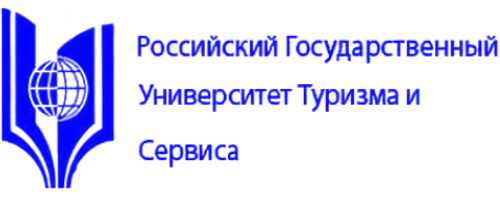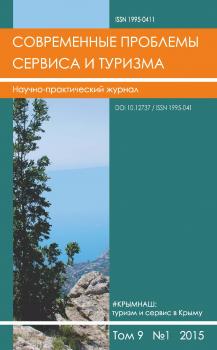The article deals with the problems of creation and functioning of Tourist and Information Center (TIC) in Russia as one of the most important segments of the hospitality industry. With the example of TIC «Moscow suburbs. DMITROV» the main problems that appear in process of creation and functioning of Russian TIC in current conditions are considered. The article presents basic features and capabilities of TIC, the range of services, examples of applications of citizens, the main difficulties in process of work. In addition, this article considers TIC not only as an organization that provides information to residents and visitors to the city, but also reflects their role as a bridge between business and municipal authorities in the territory for more effective their interaction and the formation of a competitive tourism product in the region. Big attention is paid to lack of normative legal acts defining and regulating the activities of TIC, their powers, which greatly complicates the process of work and the further development of such centers. To address these issues the integration of the work of all state and municipal bodies responsible for the development of tourism in the Russian Federation is required. The article provides a brief analysis of creation and functioning of Tourist and Information Center «Moscow region. DMITROV», experience of its work and problems that have been encountered. It also contains proposals relating to the regulation of Tourist and Information Centers´ activities, defining their powers and duties as well as cooperation with each other and other organizations.
Tourism and Information Center, functions of the TIC, normative legal acts in tourism, services in tourism, Dmitrov.
Сегодня практически невозможно представить себе популярный европейский или американский туристический объект или город без многочисленных ТИЦ. Можно сказать, что наличие таких центров - норма для территории, претендующей на статус привлекательной для туристов [2, 3]. А количество и уровень оснащения ТИЦ- правила хорошего тона и элемент престижа для города или курорта. Среди туристов широко известно о креативности и артистичности работников ТИЦ в Париже, о том, что в Барселоне «инфобудки на каждом шагу» и путеводители и сувениры в них гораздо дешевле, что в США лучший способ найти ночлег- это обратиться в ближайший ТИЦ, а в Англии в ТИЦ можно купить билет в театр, кино или цирк [6]. В каждой стране деятельность ТИЦ отличается своими особенностями, различны их юридическая организация, предоставляемые услуги, механизмы финансирования [1]. Но в какой бы форме ни существовал ТИЦ, основное направление его деятельность едино во всем мире - помощь туристам. В конце 2013 г. была разработана и принята программа развития туризма в г. Дмитров 2014-18 гг.1
1. Akimova O. S. Logisticheskiy menedzhment v deyatel´nosti turistskogo informatsionnogo tsentra. Vestnik Saratovskogo gosudarstvennogo tekhnicheskogo universiteta. 2007. T. 4. № 1(28). S. 161-166.
2. Afanas´ev O. E. Turistsko-informatsionnyy tsentr kak vedushchiy sposob formirovaniya i prodvizheniya imidzha goroda. Tezisy dokladov Mezhdunarodnogo foruma studentov, aspirantov i molodykh uchenykh. Dnepropetrovsk: DNU, 2013. S. 104-106.
3. Zhdanchikov P. A. Razvitie sistemy turistskikh informatsionnykh tsentrov v rossiyskikh regionakh. Regional´naya ekonomika: teoriya i praktika. 2015. № 25 (400). S. 13-26.
4. Petrachkova 3. 3. Predostavlenie autsorsingovykh uslug rossiyskimi turistsko-informatsion-nymi tsentrami turistskim organizatsiyam na osnove vzaimovygodnogo partnerstva. Servis v Rossii i za rubezhom. 2013. № 8(46). S. 153-158.
5. Chernyakina A. O. Rol´ turistsko-informatsionnykh tsentrov v kompleksnom podkhode k formirovaniyu brenda turistsko-rekreatsionnogo klastera. Vestnik Tomskogo gosudarstvennogo pedagogicheskogo universiteta. 2013. № 312 (140). S. 49-51.
6. Sharafutdinova E. V. Problemy i perspektivy sozdaniya turistsko-informatsionnykh tsentrov v Rossii. Vestnik Natsional´noy akademii turizma. 2009. № 3. S. 59-62.





